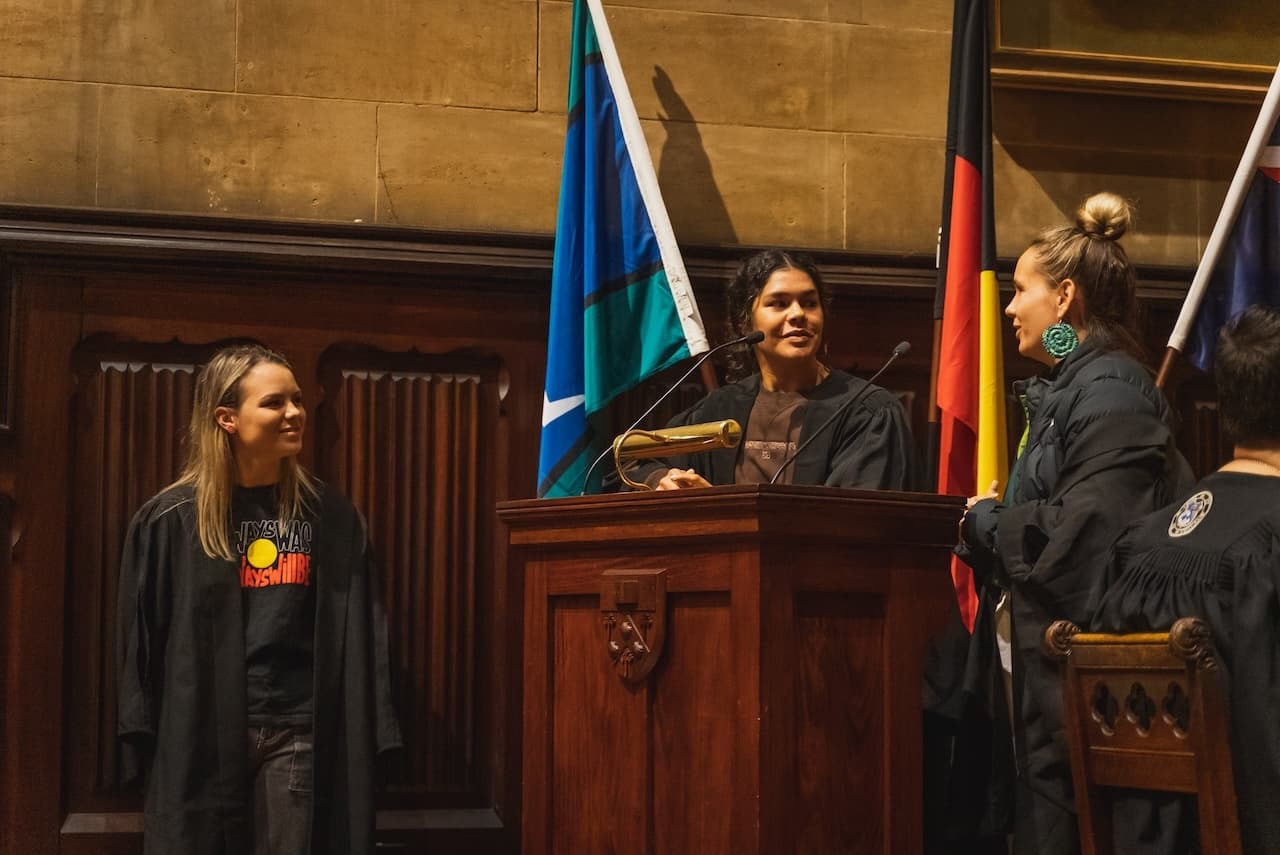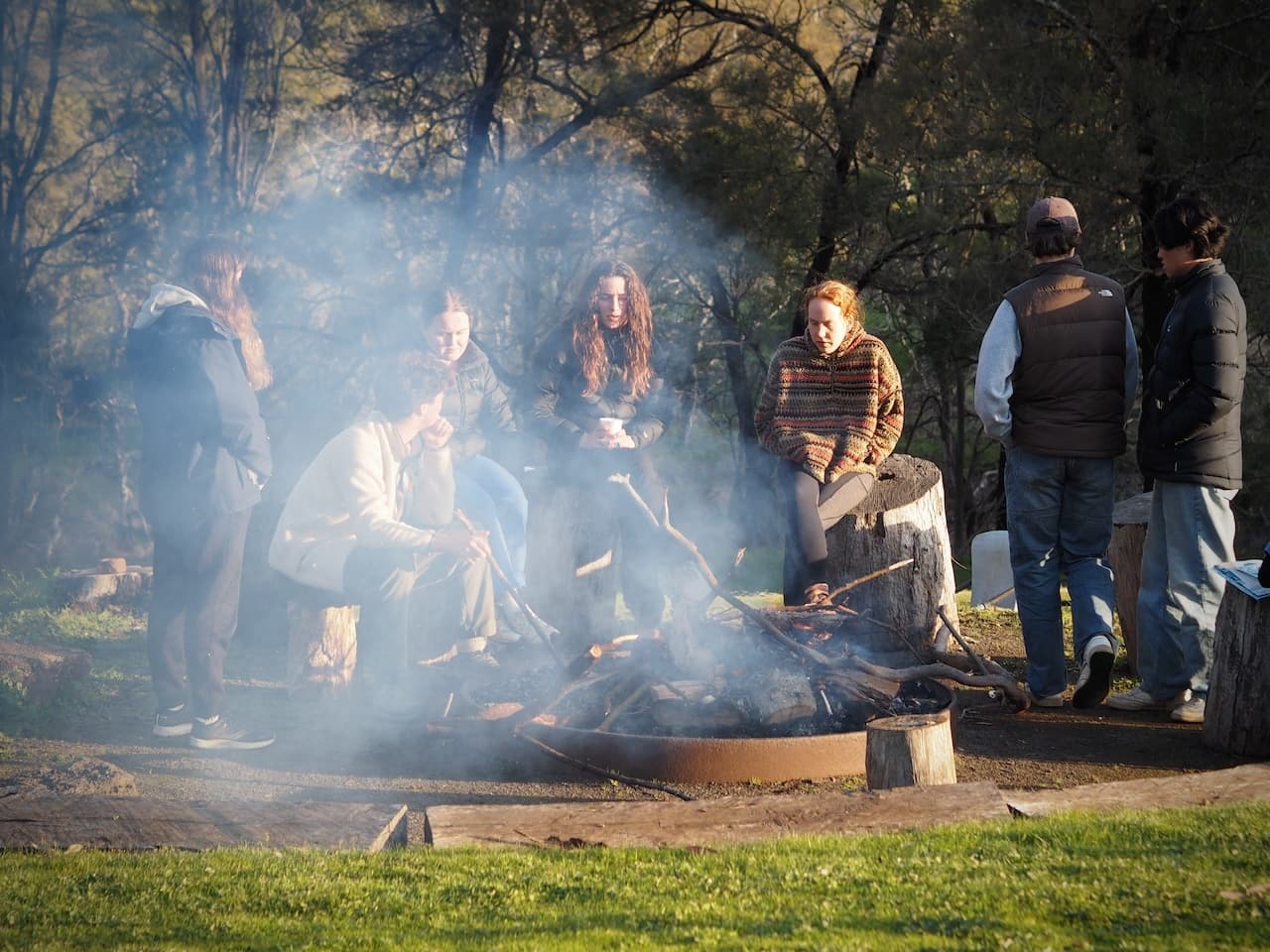Reconciliation
Ormond College is deeply committed to reconciliation and to supporting First Nations students and alumni. Through truth-telling, cultural engagement and practical action, we honour the Traditional Owners of this land and work towards a more just and inclusive future.
Our commitment
Since our founding, Ormond has sought to be a place of openness, learning and community. Today, that commitment includes acknowledging uncomfortable truths about our past and actively advancing reconciliation with First Nations peoples.
Guided by our Reconciliation Action Plan (RAP) 2024–26, we have set clear priorities for truth-telling, respect and self-determination, and a framework for advancing reconciliation across our community.This commitment shapes how we teach, how we celebrate culture, and how we support First Nations students. Every member of the Ormond community – students, staff, alumni, friends and partners – has a role to play.Alongside our RAP, we provide dedicated support and leadership opportunities for First Nations students, foster cultural learning across the College, and partner with the University of Melbourne and local communities to strengthen reconciliation initiatives.
Reconciliation Action Plan (RAP)
The Ormond College 2024-2026 Reconciliation Action Plan (RAP) is officially endorsed by Reconciliation Australia. It’s the College’s fourth RAP and its most ambitious. In this RAP, we acknowledge uncomfortable truths about our past and outline our community’s priorities and commitments in advancing reconciliation. The success of this RAP is the collective responsibility of each and every member of the Ormond community.Cultural events and celebrations
The College runs a wide range of First Nations cultural events throughout the year from musical festivals, visiting community leaders, NAIDOC celebrations, and activities to promote reconciliation.Recent speakers have included activist Noel Pearson, Catherine Liddle, Thomas Mayo, NSW Treaty Commissioner and Ormond alumnus Dr Todd Fernando, active mentor and alumna Alana Ryan, Wiradjuri scholar Associate Professor Jessa Rogers, and Tent Embassy co-founder Uncle Ghillar Michael Anderson.First Nations student support
We’ve welcomed hundreds of First Nations students and staff from all across the continent to our College over the years. First Nations students at Ormond are supported by dedicated staff and peers who provide cultural guidance, advocacy and day-to-day support. This includes the Freemantle-Lewis Fellow, Senior Residential Fellows, a Cultural Resident Advisor and a Student Support Council representative. We also have a dedicated hang-out space for First Nations students to relax on campus.
First Nations stories


Student Leadership
The Indigenous Subcommittee of the Students’ Club plays a central role in cultural life at Ormond. Through events, festivals and guest speakers, it fosters inclusion, celebrates culture and advances reconciliation within the College community.Cultural Learning & On Country Experiences
Ormond students take part in immersive cultural learning, including the annual Budj Bim On Country Experience and partnerships with Murrup Barak. These experiences deepen understanding of First Nations knowledge, history and self-determination.

Non-residential Scholarship
Ormond is one of the few Colleges to have a non-resident option, and for Indigenous students, this is fully funded. Non-Residents are an integral part of our community, and enjoy a campus experience including access to Ormond’s learning, enrichment, wellbeing, sports and Students’ Club activities, they just don’t live here.Financial Assistance
Generous financial support is available for First Nations students. Most students are eligible for full-fee coverage through ABSTUDY, alongside additional support from the University’s Indigenous Accommodation Grant and Ormond’s Financial Assistance Program.Dhoombak Goobgoowana: A History of Indigenous Australia
Through the research project Dhoombak Goobgoowana: A History of Indigenous Australia at the University of Melbourne, Ormond has gained a deeper understanding of its own colonial history. ‘Dhoombak Goobgoowana’ means ‘truth telling’ in Woi Wurrung. We acknowledge the uncomfortable truths surrounding our benefactors and the broader context of colonisation in which the College was established. This work informs our ongoing commitment to reconciliation and our responsibility to engage openly with our past.


